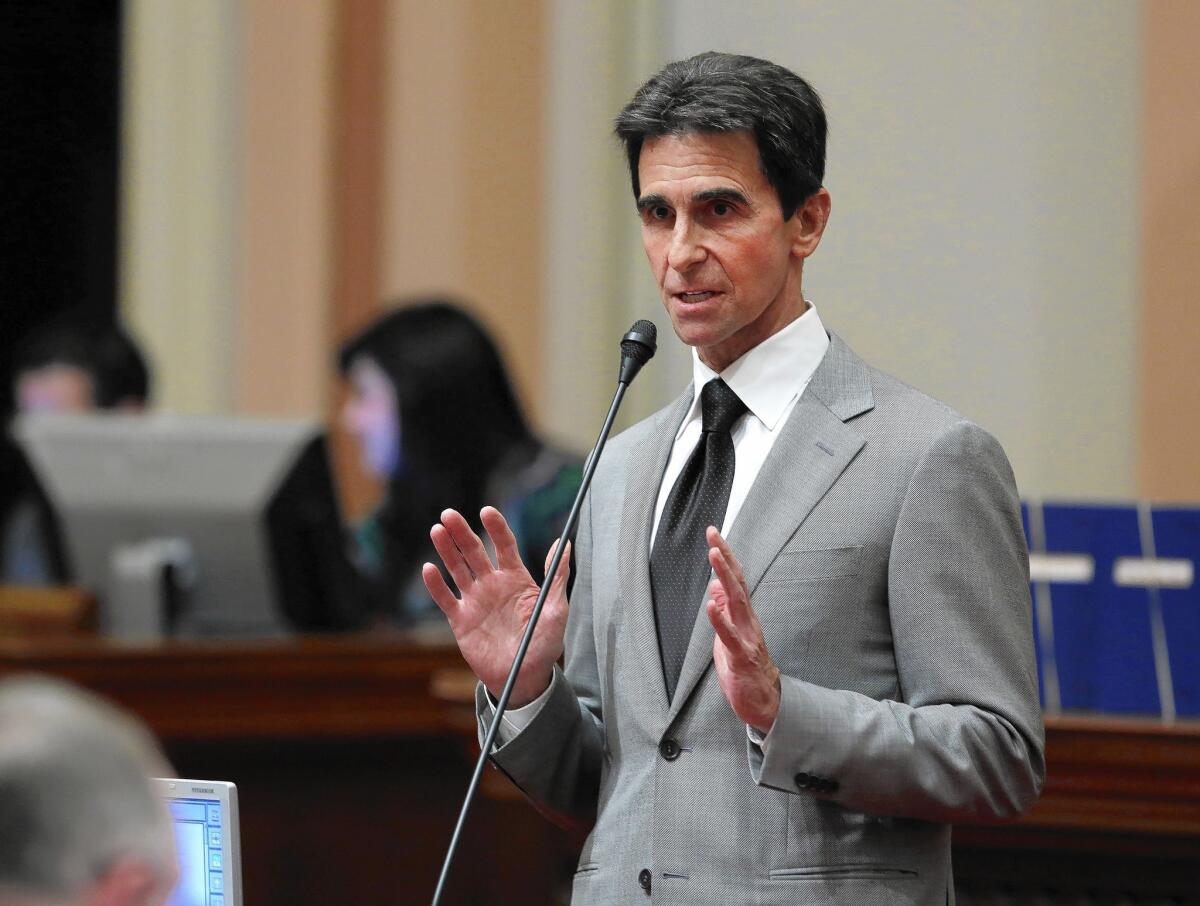Bill that would require smartphone kill switches is close to passage

Lawmakers have flipped the kill switch again, and legislation nearly defeated by the powerful wireless communications industry appears close to passage.
At stake is a bill that would allow owners to remotely deactivate their smartphones if they are stolen — and prevent random calls and a loss of private personal data.
Law enforcement hailed it as a crime-fighting measure. But tech groups that assailed SB 962 as over-regulation prevailed in the spring. The bill was defeated the first time it came up for a vote by the full Senate in May. But in Sacramento, nothing is ever dead. Last month, under intense lobbying pressure, the bill was revived after phone makers and marketers dropped their opposition.
The revised bill by Sen. Mark Leno (D-San Francisco) passed the Senate and sailed through two Assembly committees. The full Assembly is expected to vote Thursday.
The bill, if passed and signed by the governor, would make California the second state, after Minnesota, to require smartphone kill switches.
Led by San Francisco Dist. Atty. George Gascon, the push for passage gained strength with a new report and survey by a Nebraska business professor. The analysis concluded that smartphone owners could save an estimated $3.4 billion a year if their handsets were rendered worthless by activation of a kill switch.
“If all stolen phones could easily be disabled, criminals would have virtually no incentive to steal a phone in the first place,” said William Duckworth of Creighton University in Omaha. He said that an online survey of smartphone owners showed overwhelming support for the kill-switch option.
The Gascon-Leno proposal is supported by consumer groups, law enforcement and city governments including Los Angeles, San Francisco, Santa Ana, Oakland and San Diego.
It’s opposed by the California and Los Angeles area chambers of commerce, tech groups and CTIA, a national wireless trade group. They contend that it’s bad public policy for states to pass their own technical regulations for products sold nationally.
CTIA’s opposition is not shared by some of its members. According to Gascon, most smartphone makers and marketers, including Apple, Microsoft, Google, Samsung, Blackberry, Verizon and AT&T, removed their earlier opposition to the bill.
Phony papers
Businesses should watch out for official-looking letters asking for $49.50 for a “Certificate of Status” to show they are corporations in good standing, regulators warn.
The documents are issued only by the Secretary of State, for a $5 fee. A Sacramento firm called “California State Corporations” is making the fraudulent solicitations and “has no affiliations” with the state government, according to an alert from the Secretary of State. Calls to the company, identified on the phone as “California Compliance,” were not returned.
marc.lifsher@latimes.com
Twitter: @MarcLifsher







